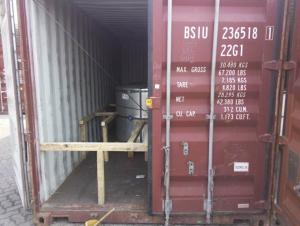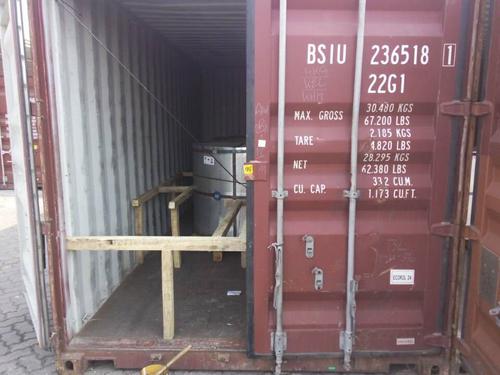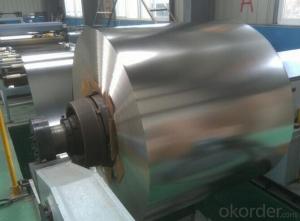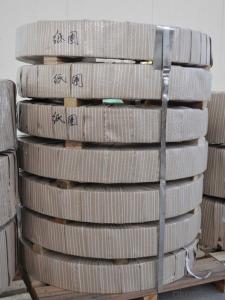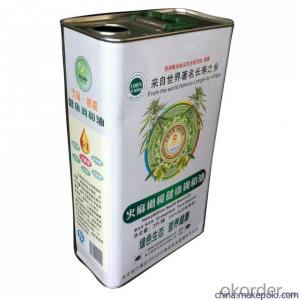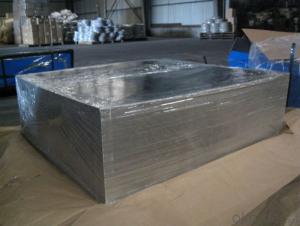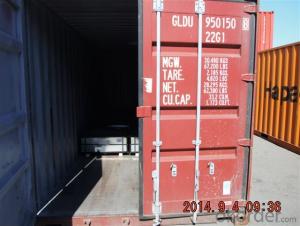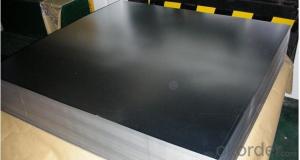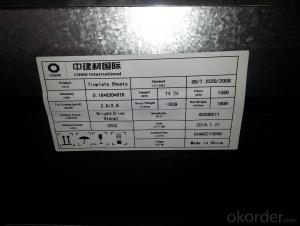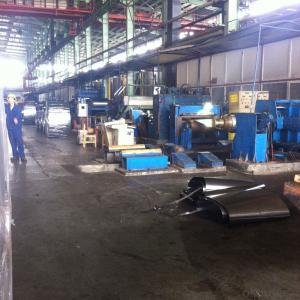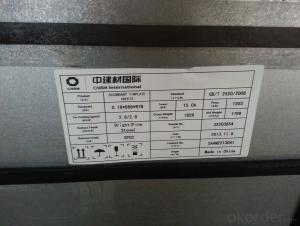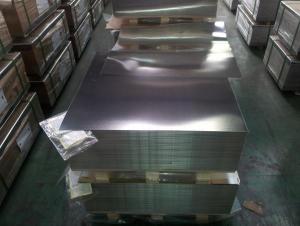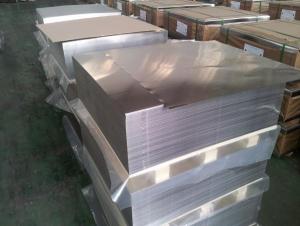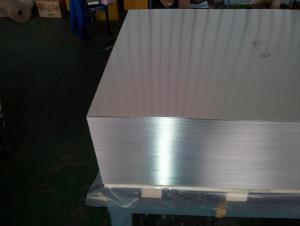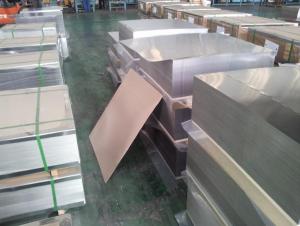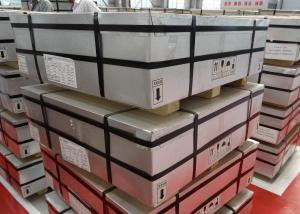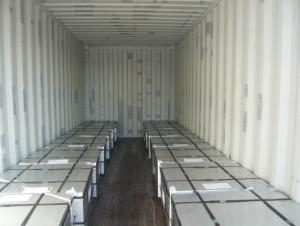Tinplate in SPCC Grade for Making Aerosol Cans
- Loading Port:
- China main port
- Payment Terms:
- TT OR LC
- Min Order Qty:
- 25 m.t.
- Supply Capability:
- 30000 m.t./month
OKorder Service Pledge
OKorder Financial Service
You Might Also Like
1. Products: Tinplate
Tinplate and TFS are widely used for making all types of containers such as artistic cans, tea cans, painting cans, chemical package cans and metal printing etc. Its applications are not limited to containers; recently, they have also been used for making electrical machinery parts and many other products.
2. Specification:
Our goods enjoyed high quality both at home and abroad. We can supply tin free steel as follows:
Technical standard | JISG3303 and GB/T 2520-2008 |
Steel Type | MR / SPCC |
Thickness | From 0.15mm to 0.50mm (Tolerance +/- 0.01mm) |
Width | Normally 600-1050mm (Tolerance +3/-0 mm) |
Coating | 2.8/2.8g/m2 , 2.8/5.6g/m2 ,1.1/1.1 g/m2 |
Temper & Annealing | T1-T5, DR7-8, TS230-TH435, T49-T65(+/- 4) |
Surface Treatment | Bright & Fine Stone & Stone & Silver & Matt |
Payment terms | Letter of Credit (L/C), Telegraphic transfer (T/T) |
Price terms | CFR & CIF price term |
Delivery time | Within 60 days after received L/C or T/T down payment |
Packing | High quality shipping packing which contains thin plastic film, rust-proof paper, metal cover, metal angles and strap sand pallet. |
Minimum order Quantity(MOQ) | 25 metric tons (1X 20'' container) |
3. Pictures:
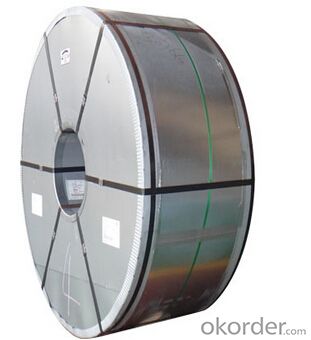
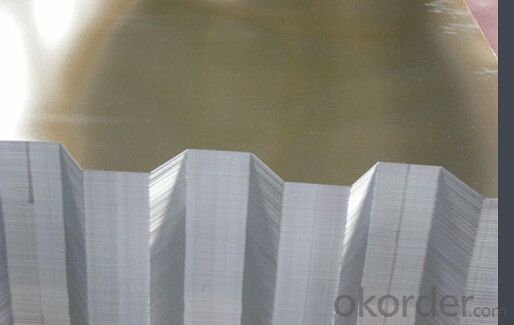
4. Features of the factory price/ tin free steel/tinplate/tfs/tmbp/etp/spte:
Beautiful Appearance
Excellent Paintability & Printability
Excellent Formability & Strength
Excellent Corrosion Resistance
Excellent Solderability & Weldability
5. FAQ:
We are one of the main producers in China for tinplate, tin free steel and also TMBP. At present, our productivity is more than 450000 MT/year.
For more information about our products or company, pls contact us freely.
Welcome your enquiries and orders.
- Q: How is tinplate used in the manufacturing of toys?
- Tinplate is commonly used in the manufacturing of toys due to its durability and malleability. It provides a sturdy and safe material for creating toy parts such as car bodies, dollhouse accessories, or tin soldiers. Tinplate can be easily shaped and painted, allowing manufacturers to create intricate designs and vibrant colors on toys. Furthermore, its resistance to corrosion ensures that the toys remain in good condition for an extended period of time.
- Q: How is tinplate coated to prevent corrosion?
- Tinplate is coated to prevent corrosion through a process called tinplating or electrolytic tin coating. In this process, a thin layer of tin is electroplated onto the surface of the tinplate. This tin layer acts as a protective barrier, preventing direct contact between the base metal (usually steel) and the corrosive elements in the environment, thus inhibiting corrosion.
- Q: Can tinplate be used for toys and games?
- Yes, tinplate can be used for toys and games. It is a versatile material that is lightweight, durable, and easy to shape. Tinplate can be molded into various shapes and sizes, making it suitable for creating toy cars, action figures, board game components, and other playthings. Additionally, its glossy finish can enhance the aesthetic appeal of toys and games.
- Q: What are the main challenges in tinplate inventory management?
- One of the main challenges in tinplate inventory management is the fluctuating demand for tinplate products, which requires accurate forecasting and planning to avoid overstocking or stockouts. Additionally, tinplate is prone to rusting, so proper storage and handling techniques are crucial to maintain product quality. Lastly, managing multiple tinplate sizes and specifications can be complex, requiring efficient tracking and organization systems to ensure the right products are available when needed.
- Q: Can tinplate be used for construction applications?
- Yes, tinplate can be used for construction applications. Tinplate, which is a thin steel sheet coated with a layer of tin, offers several advantages such as strength, durability, and corrosion resistance. It is commonly used in construction for various applications including roofing, siding, wall panels, and decorative elements. Additionally, tinplate can be easily formed and shaped, making it suitable for different construction needs.
- Q: Can tinplate be used for packaging products with specific storage requirements?
- Yes, tinplate can be used for packaging products with specific storage requirements. Tinplate is known for its excellent durability, corrosion resistance, and ability to maintain product freshness and quality over time. It can provide an effective barrier against moisture, light, and oxygen, making it suitable for packaging products that require protection from these elements, such as food, beverages, cosmetics, and pharmaceuticals. Additionally, tinplate can be customized with various coatings and linings to meet specific storage requirements, ensuring the long-term preservation and safety of the packaged products.
- Q: What are the main export markets for tinplate?
- The main export markets for tinplate include countries such as China, Japan, the United States, Germany, and South Korea.
- Q: Can tinplate be used for coinage?
- No, tinplate cannot be used for coinage as it is not a suitable material for making coins.
- Q: How does tinplate contribute to the reliability of telecommunications devices?
- Tinplate contributes to the reliability of telecommunications devices by providing a durable and corrosion-resistant coating that protects the inner components from external factors such as moisture, humidity, and oxidation. This protection helps to prevent damage or malfunctioning of the devices, ensuring consistent and reliable performance.
- Q: How does tinplate contribute to the safety of toys?
- Tinplate contributes to the safety of toys by providing a durable and non-toxic material that is resistant to corrosion and can withstand rough play. It also helps to prevent sharp edges, reducing the risk of injuries. Additionally, tinplate is often used to create protective coatings on toys, making them less prone to breakage and ensuring they meet safety standards.
Send your message to us
Tinplate in SPCC Grade for Making Aerosol Cans
- Loading Port:
- China main port
- Payment Terms:
- TT OR LC
- Min Order Qty:
- 25 m.t.
- Supply Capability:
- 30000 m.t./month
OKorder Service Pledge
OKorder Financial Service
Similar products
Hot products
Hot Searches
Related keywords
